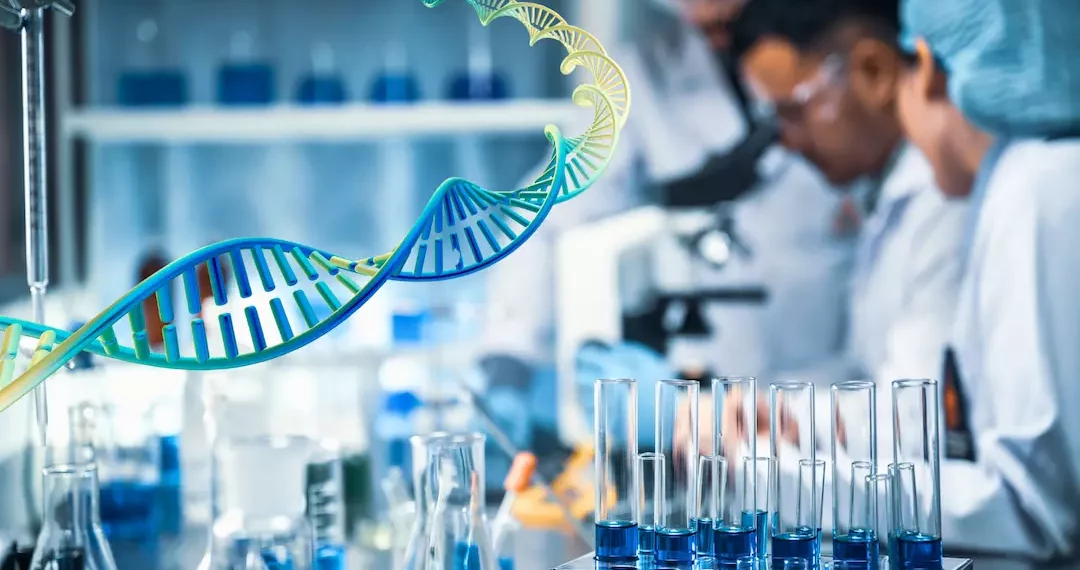Many people believe that genetics completely control our lives. For example, genetic factors have long been accused of being solely responsible for obesity, excessive thinness, and other disorders… But the scientific truth has shown that we humans can control the way these genes work and control them in a way that makes us able to determine the course of our healthy lives, and perhaps prolong our lives as well, God willing.
New News - Health
Studies have shown that the average lifespan in humans is 25% related to genetic factors, meaning that the period we live is mostly determined (75%) by the environment, and only 25% by our genetics.
According to a report published by the British newspaper The Daily Telegraph, some genes may make us more susceptible to disease. For example, some genetic variants can increase the risk of obesity, Alzheimer’s disease, and cancer.
Genetics Can Be Controlled Like Home Light Switches
However, our daily lifestyle habits may interfere with how our genetics are expressed and can effectively turn on or off the influence of certain genes on the light switches in our homes.
This is what the new study concluded, as scientists confirmed that human practices and lifestyle are the main indicator for controlling the chances of reducing genetics associated with disease and recalling genes associated with prolonging life.
She also reported that people who exercise are more able to make changes in their bodies, which in turn affects how genes are expressed, and the same applies to diet.
Calorie Restriction Helps Delay Biological Aging
Reducing calories helps maintain the quality of genetics
There is a gene called mTOR that regulates how cells sense nutrients, explained Dr. Nick Kittakis, research group leader at the Babraham Institute, where researchers study the aging process.
Pointing out that experiments have shown that reducing the activity of the mTOR gene by reducing calories leads to prolonging lifespan in some animals, and it is likely to do so in humans as well.
Scientists are currently studying the development of rapamycin, which originally appeared as an immunosuppressant for patients who have undergone organ transplants, but experiments have also proven its effectiveness in stopping the activity of the mTOR gene.
One study conducted by a team at Columbia University found that people who reduced their food intake by 25 percent for two years slowed their biological aging by 2 to 3 percent.
Controlling The FOXO3 Gene Extends Life
Scientists participating in the study showed clear optimism about the FOXO3 gene, which is the main gene responsible for extending human lifespan, and it also integrates signals from dozens of other genetics that influence the aging process.
Research has shown that controlling the FOXO3 gene contributes to the prevention of cardiovascular disease – one of the leading causes of death in the UK – and cardiovascular diseases that include heart attacks, diabetes, and non-alcoholic fatty liver disease.
Exercise Is the Green Light to Stimulate Genes
Researchers have confirmed that exercising stimulates the FOXO3 gene, in which case the gene releases antioxidants that reduce the chances of inflammation.
The rate at which the FOXO3 gene becomes active depends on the nature of the genes themselves in the DNA of the human body and his daily life habits.
Getting Enough Sleep Prolongs Life
When scientists at the University of Rochester compared how genes were regulated between dozens of different animals, they noticed that the species that lived longer saw a significant decrease in the activity of their inflammation-related genes, which are responsible for converting food into energy.
They pointed out that the biological clock is the main indicator for controlling the level of decline or increase in the performance of these genes, which means that sleep disorders may lead to a decrease in the average lifespan among people.
Eating Green Tea, Broccoli, Oranges, and Berries Rejuvenates Life
Researchers have pointed out the importance of some foods, such as green tea, broccoli, oranges, and berries, which are rich in antioxidants, and which stimulate the body’s supply of the AMPK gene, or adenosine monophosphate-activated protein enzyme, which acts as a substitute for metabolic enzymes in living cells.
They also confirmed that exercising and reducing calories significantly raise the levels of this gene.
Source: Telegraph



















